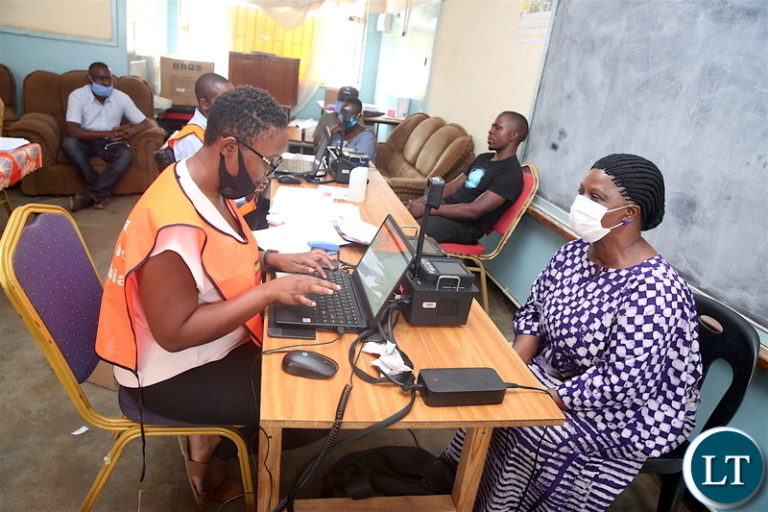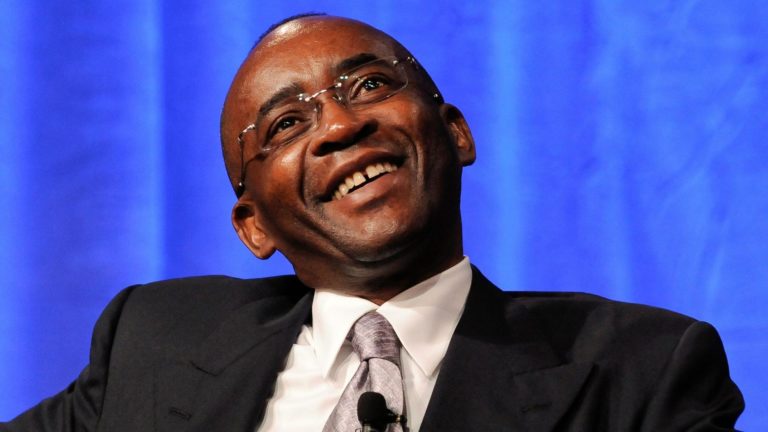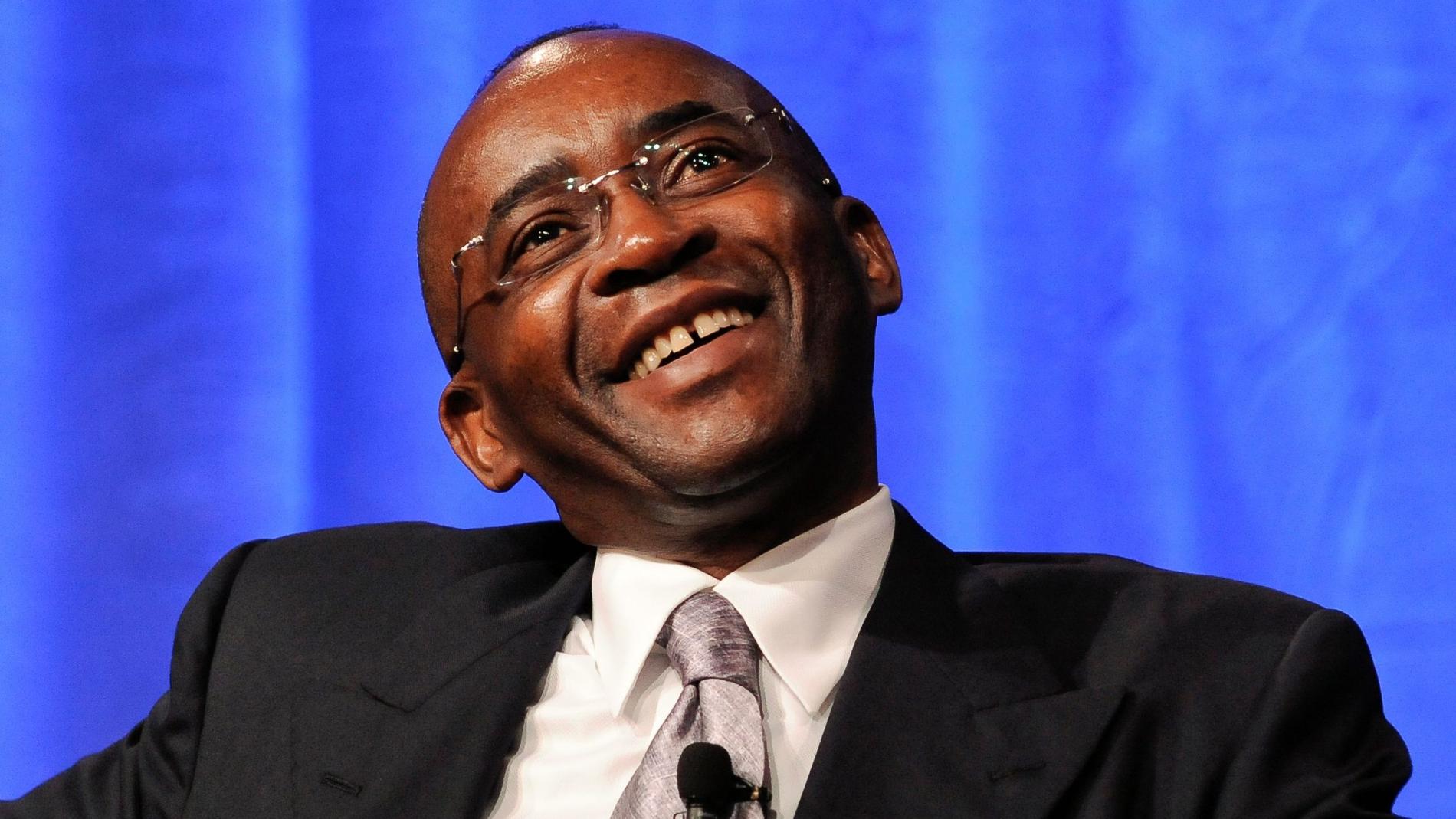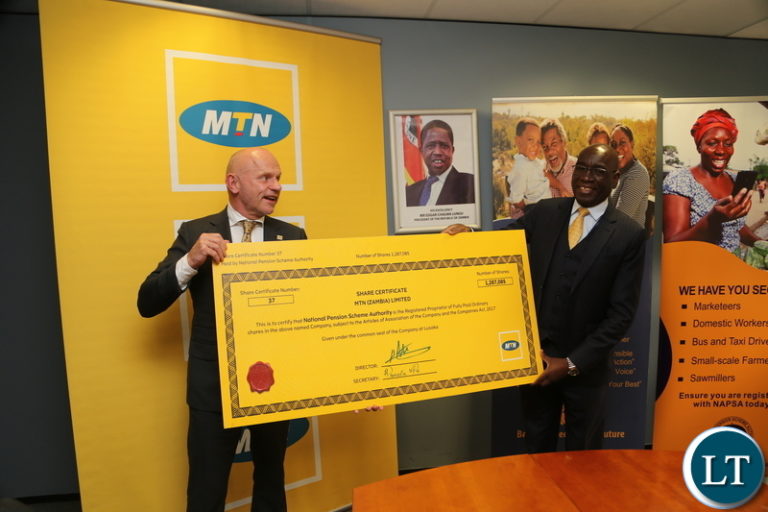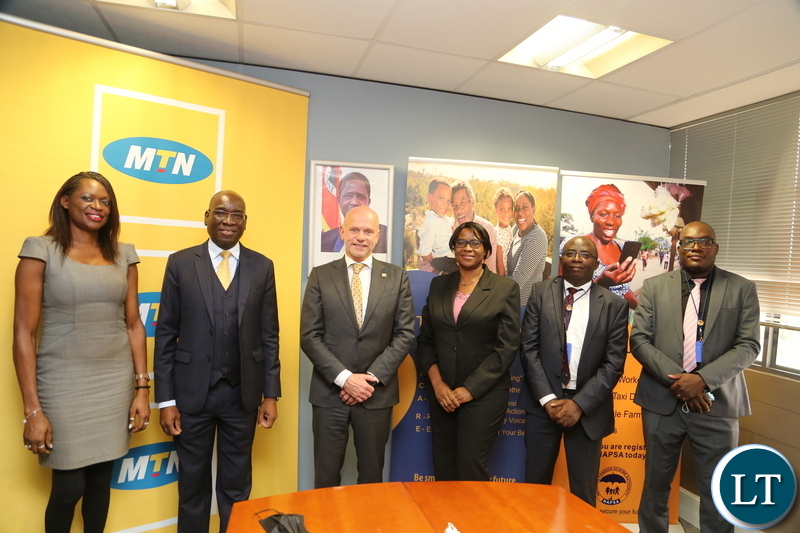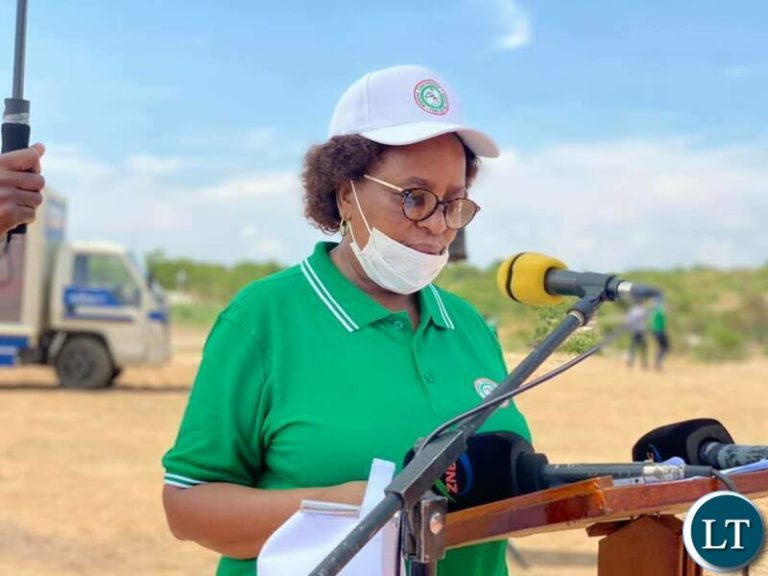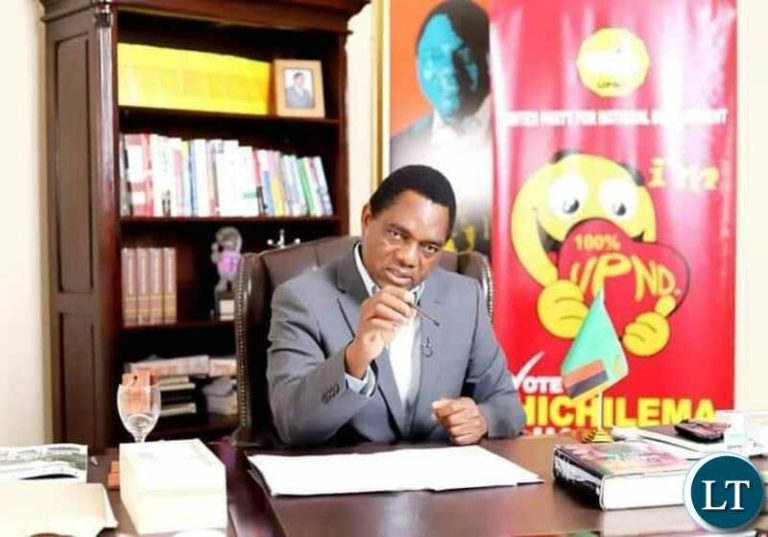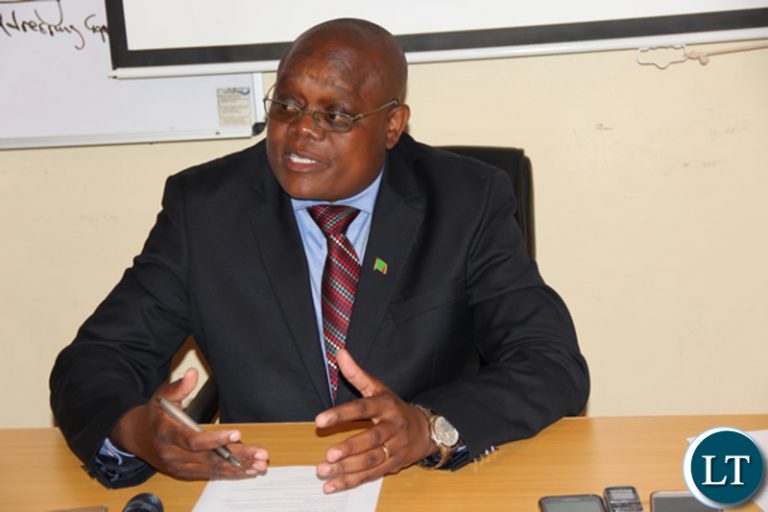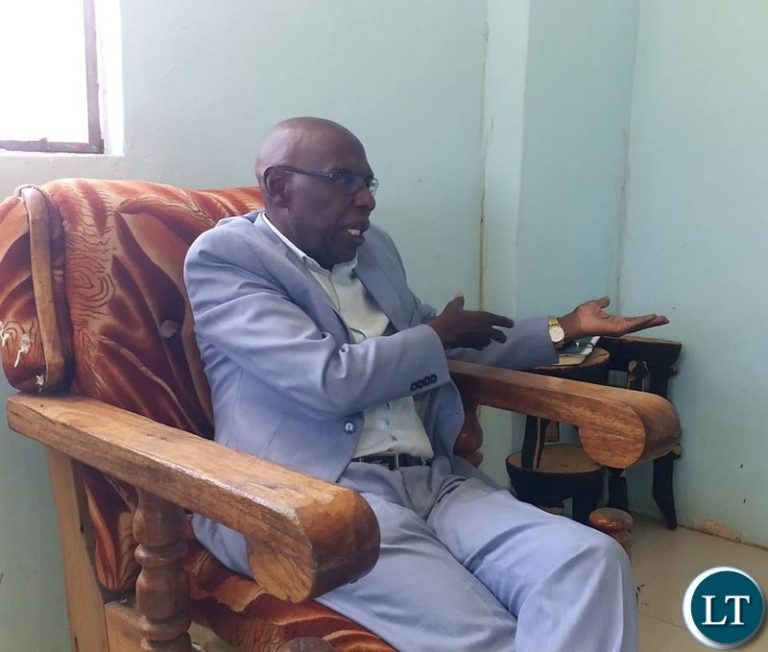As Zambia goes to the polls in the next few months, the focus by the International Community and other local stakeholders has been on registration of voters, a process which is going into the 31st day following the 4- day extension announced by the Electoral Commission of Zambia on Tuesday, 15th December, 2020.
Both Secretary General of the ruling Patriotic Front Davis Mwila and leader for United Party for National Development Hakainde Hichilema have reacted to the announcement by the Commission.
We have closely monitored the numbers of citizens who have registered but we have also noted the new timelines given by the Commission to this process. We understand the terrain across the country and the sentiments among the millions who have registered. We probably can predict with accuracy how this election will be won by the winners and lost by the losers from our interaction with many registered voters. But that is the reflection for another day. Here we are concerned with the management of voter registration and the new timelines.
The debate that the Commission should have conducted continuous registration of voters is plausible, on face value, in terms of the provisions of Section 7 of the Electoral Process Act, No. 35 of 2016 which reads: “The Commission shall conduct a continuous registration of voters.”
However, as opposed to using the word “continuous,” Article 229(2)(c) of Constitution of Zambia simply states that the Electoral Commission shall register voters” while Section 4(2)(d) of the Electoral Commission Act No. 25 of 2016 only says, the function of the Commission “are to supervise and control the registration of voters for the purposes of an election.” As to which provision of the law should be emphasised, we shall leave this matter to the Constitutional Court to give its guidance.
While we are confident that our Constitutional Court will give the guidance the Country seeks, we would caution that on one or two occasions, our Constitutional Court has given guidance which raises new questions rather settle old questions definitively.
We have in mind that this very Court upheld the post-1996 custom in which Ministers vacate office upon dissolution of Parliament, against a clear provision in Article 116(3)(e) of the Constitution which expressly allows Ministers to stay in office until another person assumes the office of President.
Secondly, there were sanctions already prescribed for ministers who abused public resources in the course of political campaigns, which was the main point of contention which led to demands that ministers should not continue in office so that they do not take advantage of their incumbency to use public resources for their political party campaigns.
We have also seen the Court uphold the ECZ’s unilateral decision to require candidates for local government elections, to produce letters of adoption from political parties even though the constitution does not require it. More recently, the court held that a sitting councillor who aspired to stand for election to the post of Mayor, could not do so because such a councillor would be creating a vacancy for a by-election and would therefore be disqualified. We found this decision of the Constitutional Court quite puzzling.
However, on this occasion, we will not prejudice the court with our trepidation and we look forward to seeing how the Court will reconcile the Electoral Process Act to the Constitution and the Electoral Commission Act.
Another issue that has come up repeatedly is the discarding of the current register of voters by the Commission. The register which is being discarded was established in 2005 using optical character recognition (OCR) technology and was updated in 2011 using a biometric voter registration system based on thumbprint capture and facial portrait. The discarding of the 2005 register has been argued as an attempt by the Commission to “disfranchise” those who were on that register as some stakeholders had anticipated a far smaller number of eligible voters registering during the 30-day period.
Again, our position is that the law expressly allows the Commission to technically remove one or all voters in the register and replace them with those who qualify to vote under newly prescribed conditions. The authority for ECZ to deregister all voters from the 2005 register is given in Section 10(b) as read together with Section 8(2) of the Electoral Process Act.
The newly prescribed condition for voters on the register is that they must have the 10 fingerprints captured. This technically removes or lawfully deregisters everyone who was registered in 2005 to 2016 if they no longer meet the criteria or qualifications for registration as prescribed by the Commission.
Before we leave this topic, we want to join Zambians who have commended the Commission for registering more than 6.4 million voters within 30 days. This number shows Zambia is ready to, once again, have a competitive election in 2021, even if the Commission had not given any further extension. However, our projection is that the Commission will register around 7.4 million voters at the end of the registration period on Sunday.
Finally, we note the key timelines given by the Commission. We are dissatisfied with these timelines because they do not support the spirit of both the Constitution and the electoral law itself.
The Commission has said it will consolidate a provisional register which will be published for 21 days from 1st March 2021 to 21 March 2021. The law anticipates that such a provisional register should be available for a minimum of 90 days. The importance of the provisional register lies in the provisions of Section 17 of the Electoral Process Act.
That part of the Act gives a person who had registered “up to ninety days’ of the publication of the Provisional Register of Voters” to object to an error or omission regarding the person’s details as they appear on the provisional register. During this period, a person can also make objections regarding the registration details of another person.
For instance, if EEP leader Chilufya Tayali, has objections against the registration details of UPND President Mr. Hakainde Hichilema, this is the period during which he can raise an objection against the registration of Mr. Hichilema as a voter as well as to serve notice of the objection on that person.
The Commission equally has 14 days to consider the objection against the person’s details or any other objection against registering anyone as a voter. Once the decision is made and communicated to the registration officer, such an officer is required to, within three days of the decision, give effect to a decision of the Commission. Legally, the 21 days for ECZ to have the provisional register is not based on any law and is ultra vires Section 17 of the Electoral Process Act.
The decision to appoint 14 – 18 June, 2021 for Presidential nomination is against the spirit of Article 52 of the Constitution, in the event that anyone decides to challenge the nomination, as we have been hearing, of Edgar Lungu, Hakainde Hichilema and Chishimba Kambwili, which may take place on the 18th June, 2021. Article 52(4) mandatorily requires that 30 days before the election, there must be no pending matter in Court. This means, between 11th July, 2021 and 12th August, 2021, all petitions should have been concluded.
But a petition filed on the 7th day after 18th June, 2021 and heard within 21 days would go upto the 16th July, 2021, in the worst case and in considering our adversarial system of justice system.
In view of the above observations, the Commission should revise the dates further to ensure respect for the 90 days in which the provisional register should be in the public domain as well as revise dates for nominations to give room to the court processes.
Author unknown


